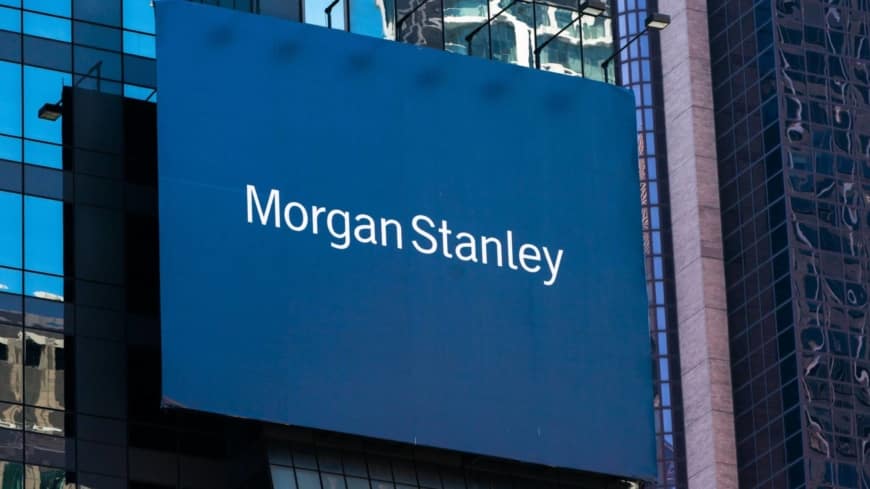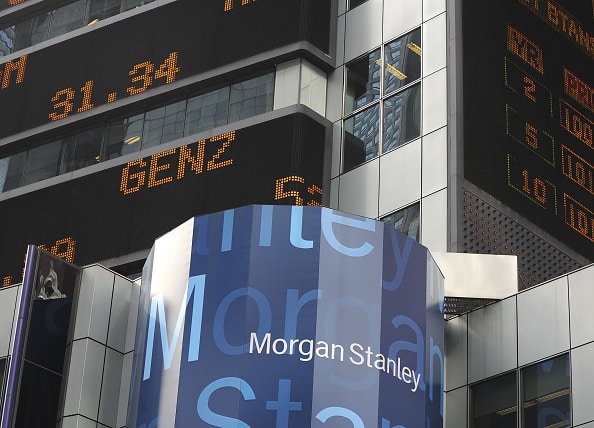Morgan Stanley US Growth Review – that will be the topic of today’s article.
Learn if Morgan Stanley US Growth is worth investing in, alongside the Friends Provident International Reserve Bond.
Nothing written here should be considered as financial advice, nor a solicitation to invest.
For any questions, or if you are looking to invest as an expat, you can contact me using this form, or via the WhatsApp function below.
Introduction
Morgan Stanley is an American multinational investment bank and financial services company headquartered at 1585 Broadway in the Morgan Stanley Building in downtown Manhattan, New York. With offices in more than 42 countries and over 60,000 employees, the firm’s clients include corporations, governments, institutions, and individuals. Morgan Stanley was ranked 67th in the 2018 Fortune 500 list of largest corporations in the United States in terms of total revenue.

The original Morgan Stanley, created by partners JP Morgan & Co. Henry Sturgis Morgan (grandson of JP Morgan), Harold Stanley, and others, appeared on September 16, 1935, in response to the Glass-Steagall Act, which required the separation of commercial and investment banking businesses. In the first year, the company operated with a market share of 24% (US $ 1.1 billion) in public and private placements.
The current Morgan Stanley is the result of the merger of the original Morgan Stanley with Dean Witter Discover & Co. in 1997. Dean Witter’s chairman and chief executive officer, Philip J. Purcell, became chairman and chief executive officer of the newly merged Morgan Stanley Dean Witter Discover & Co. In 2001, the new firm changed its name again to Morgan Stanley. The main activities of the company today are institutional securities, capital management, and investment management. The Financial Stability Board considers the bank to be systemically important.
3 main divisions of the company
Institutional securities group
Morgan Stanley institutional securities are the most profitable segment of the business. This business segment provides services to organizations such as capital raising and financial advisory services, including mergers and acquisitions, restructuring, real estate and project finance, and corporate lending. The segment also includes the company’s equity and fixed income divisions; commerce is expected to maintain its position as the “engine room” of the company. Among the largest US banks, Morgan Stanley earns the largest share of its fixed-income underwriting revenue, which reportedly accounted for 6.0% of total revenue in fiscal 2012.
Wealth management
Global Wealth Management Group provides stockbrokers and investment advisory services. This segment provides financial planning and wealth planning services to its clients, which mainly consist of high net worth individuals.
On January 13, 2009, the Global Wealth Management Group merged with Citi’s Smith Barney to form Morgan Stanley Smith Barney. Morgan Stanley owned 51% of the company, Citi 49%. On May 31, 2012, Morgan Stanley exercised its option to purchase an additional 14% of the joint venture from Citi. In June 2013, Morgan Stanley announced that it had received all regulatory approvals to buy the remaining 35% of Citigroup’s shares in Smith Barney and would proceed to close the deal.
Investment management
Investment Management provides institutional and retail clients with equity, fixed income, alternative investment, real estate, and private equity asset management products and services to institutional and retail clients through third-party retail distribution channels, intermediaries, and Morgan Stanley’s institutional distribution channel. Until 2009, Morgan Stanley’s asset management activities were primarily carried out under the Morgan Stanley and Van Kampen brands.
On October 19, 2009, Morgan Stanley announced that it would sell Van Kampen to Invesco for $ 1.5 billion, but would retain the Morgan Stanley brand. It provides asset management products and services to institutional investors around the world, including retirement plans, corporations, private foundations, non-profit organizations, foundations, trust funds, government agencies, insurance companies, and banks.
On September 29, 2013, Morgan Stanley announced a partnership with Longchamp Asset Management, a French asset manager specializing in the allocation of UCITS hedge funds, and La Française AM, a multi-specialized asset manager with 10 years of experience. in alternative investments.
Morgan Stanley US Growth Fund

Before we start talking a little about the MS US Growth Fund, let’s first understand what is a growth fund? A growth fund is a diversified portfolio of stocks whose primary purpose is capital gains, with little or no dividend payments. The portfolio is mainly composed of above-average-growth companies that reinvest their earnings in expansion, acquisitions, or research and development (R&D). Most growth funds offer higher potential capital gains, but usually with above-average risk.
But how the growth fund works? The high-risk, high-reward mantra of growth funds may make them ideal for those not retiring anytime soon. Investors typically require a risk tolerance and holding period with a time horizon of five to ten years. Growth funds often have high price-to-earnings (P / E) and price-to-sales (P / S) ratios. This compromise on the part of investors represents the above-average income that these companies receive.
Types of growth funds
Growth funds, along with value funds and mixed funds, are one of the main types of mutual funds and exchange-traded funds (ETFs). They are more volatile than value and mixed funds. Growth funds are generally categorized by market capitalization, with funds representing small, mid-cap, and large-cap groups of companies.
High-cap mutual funds are among the largest types of mutual funds in terms of market share. Large investment funds that offer investors value and growth are also very popular. Large-cap foreign growth funds are much smaller in market share.
Foreign growth funds are becoming more common among investors looking to reap the benefits of global growth. These funds invest in international equities, showing significant growth in revenues and profits. For international growth funds, the most common are the technology and consumer sectors. Larger online companies such as Baidu (BIDU) or Alibaba (BABA) are included in the top ten companies that have many international growth funds under management.
In case you are looking for an advisor, who can help and redirect you to invest in the Morgan Stanley Growth Fund, check out this form and if needed apply.
The Morgan Stanley Investment Funds US Growth Fund (MPP), which constitutes the Plan’s fund, invests exclusively in the Morgan Stanley Investment Funds US Growth Fund (the “Designated Fund”). The trust fund is a sub-fund of Morgan Stanley investment funds.
The investment objective of the Fund is to provide long-term capital appreciation, measured in US dollars, by investing primarily in securities issued by US companies and on ancillary basis in securities issued by companies not registered in the US. An issuer may be considered to be from a specific country (including the United States) or geographic region if (i) its primary market for securities trading is located in that country or geographic region; (ii) independently or on a consolidated basis, it receives 50% or more of its annual revenue from goods manufactured, sales sold or services rendered in that country or geographic region; or (iii) it is organized by law or is headquartered in that country or geographic area. By applying these tests, it is possible that a particular issuer can be found from more than one country or geographic region.
Investment approach is that the company is looking for established and emerging large-cap companies in the United States that they believe have a sustainable competitive advantage with above-average business visibility, the ability to invest with high returns, strong balance sheets, and an attractive risk-reward profile.
Prices and performance
Past performance cannot be a reliable indicator of the future performance results. Profitability can increase or decrease as a result of fluctuations in foreign exchange rates. All performance data is calculated from NAV to NAV minus commissions and does not include commissions and costs incurred in the issuance and redemption of shares. The source of all performance and index data can be found in Morgan Stanley Investment Management section.
Who can invest in Growth Funds?

Growth funds are high-risk investment vehicles. Hence, you should only consider investing in growth funds if you are aggressive in looking for risks. For this reason, it can be highly profitable. If you are close to retirement then it would be wise not to invest in these funds. Best suited for long-term investments. Hence, only choose them if you are risk-tolerant and willing to invest for at least 5-10 years.
While you may be able to exit the fund earlier, it comes with the burden of exiting. The only income will be from the sale of funds, and your profit will be equal to the sale price in excess of the purchase price. If you think this suits your investment image, feel free to invest in growth funds. Therefore, young investors who have long-term investments at hand find them particularly attractive.
Benefits of investing in Growth Funds
High-profit opportunity
This fund attracts many investors due to its capital gain potential. Professional fund managers spend considerable effort identifying and selecting these stocks.
Tax efficiency
Growth funds attract long-term capital gains tax of 10% if income exceeds $ 1,500 and is withheld for more than a year. However, they are more tax-efficient than mutual funds with securities.
Diversified portfolio
Having growth stocks in a mutual fund helps diversify. Therefore, it reduces the overall risk of investing in volatile stocks to some extent.
Pained by financial indecision? Want to invest with Adam?
Adam is an internationally recognised author on financial matters, with over 760.2 million answer views on Quora.com, a widely sold book on Amazon, and a contributor on Forbes.



